第42章 LIBRARY WORK WITH CHILDREN(3)
For the first time in literature,with sympathetic insight,there was laid bare the misery of childhood among the lowly and unfortunate,and the pathos of unhappy childhood was pictured with all its tragic consequences to society as a whole.In the story of Poor Joe,the street-crossing sweeper,who was always told to move on,we read the stories of thousands of the boys of to-day.His brief tenantry of Tom-all-Alones shows us the prototype of many thousands of living places in the slums of our own time.Conditions which environ growing boys and girls --not only thousands of men,but many millions--in the congested cities of the Anglo-Saxon world,are well suggested by the names which have been given in derision,or brutally descriptive as the case may be,to such centers of human hiving as the Houses of Blazes and Chicken-foot Alley,in Providence;Hell's Kitchen in New York;the Bad Lands in Milwaukee;Tin Can Alley,Bubbly Creek and Whiskey Row back of the stockyards in Chicago.In these regions and in others like them darkness and filth hold forth together where the macaroni are drying;broken pipes discharge sewage in the basement living quarters where the bananas are ripening;darkness and filth dwell together in the tenement cellars where the garment-worker sews the buttons on for the sweat-shop taskmaster;goats live amiably with human kids in the cob-webbed basements where little hands are twisting stems for flowers;in the unlovely stable lofts where dwell a dozen persons in a place never intended for one;in windowless attics of tall tenements where frail lives grow frailer day by day.
Lisabetta,Marianna,Fiametta,Teresina,They are winding stems of roses,one by one,one by one--Little children who have never learned to play;Teresina softly crying that her fingers ache today,Tiny Fiametta nodding when the twilight slips in,gray.
High above the clattering street,ambulance and fire-gong beat;They sit,curling crimson petals,one by one,one by one.
Lisabetta,Marianna,Fiametta,Teresina,They have never seen a rosebush nor a dewdrop in the sun.They will dream of the vendetta,Teresina,Fiametta,Of a Black Hand and a Face behind a grating;They will dream of cotton petals,endless,crimson,suffocating,Never of a wild rose thicket,nor the singing of a cricket;But the ambulance will bellow through the wanness of their dreams,And their tired lids will flutter with the street's hysteric screams Lisabetta,Marianna,Fiametta,Teresina,They are winding stems of roses,one by one,one by one;Let them have a long,long playtime,Lord of Toil,when toil is done;Fill their baby hands with roses,joyous roses of the sun.
Reverting to Poor Tom,well may the words of Dickens in Bleak House serve as a text for to-day:"There is not an atom of Tom's shrine,not a cubic inch of any pestilential gas in which he lives,nor an obscurity or degradation about him,nor an ignorance,nor a wickedness,nor a brutality of his committing,but shall work its retribution,through every order of society up to the proudest of the proud and the highest of the high."Whatever of permanence the ideal democracy which underlies our institutions may achieve,it will not be the survival of conditions such as these,but the fruition of their betterment.
Recognition of the sinister elements involved determines the modern type of library work with children.That work rests upon a knowledge of the background which has been pictured,upon the use of methods that shall reach sanely and effectively the contributing causes,upon correlation of all the social forces that can be brought to bear unitedly.
Recognition of conditions and causation gives power to,and justifies the modern trend of,library work with children as the most important and far-reaching of all its great work.Of thirty million men and women,and their children,who have come from Over-seas in two generations,83per cent were dwellers along the rim of the Mediterranean.Largely from that source have our towns grown overnight into swarming cities.Their children of to-day will be the men and women who in a generation will make or unmake the Republic.Ignorance and greed,rather than necessity,breed the chief menace in our national life.Alone as a detached social force,the library cannot hope to combat these,but in correlation with other forces may serve as one of the most potent agencies.In the children's rooms and in kindred places,the missionaries of the book take the disregarded bits of life about them and weave them into a human element of power.The children's rooms in the library and what they imply in the life of the people,are of such recent origin and growth that the complete force of their present-day work will not be fully apparent for a quarter century.What they hope to do,the instruments they purpose to use,are given succinctly in the pronouncement of one of our most progressive libraries.